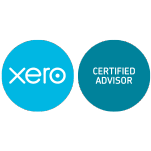Taxpayers may/may not be aware that a further nine categories of “income” are included in addition to a person’s taxable income to calculate the Working for Families Tax Credits (WFF) from the 2012 income year.
These are:
- Attributable trustee income;
- Attributable fringe benefits;
- PIE income;
- Passive income of children;
- Income of non-resident spouse;
- Tax-exempt salary or wages;
- Pensions and Annuities;
- Other payments; and
- Income equalization scheme deposits (excludes “adverse events” deposits).
The intention to include the above categories is more about the “economic” income rather than your usual income. This is so that a family’s true economic income is captured from all sources to best target those who need Government assistance. Each of the above categories is explained in detail on the Inland Revenue website (www.ird.govt.NZ/WFF-tax-credits).
However, an explanation of “Other Payments” is in order since this appears to be a “catch-all” category. According to the government, these would include the “value of payments…from any source” received by a family for day-to-day living expenses or to replace lost or diminished income.
This is a fairly wide inclusion on which the Inland Revenue has attempted to provide further clarification as follows.
Value of payments means:
- cash payments (including any amount credited to an account); or
- market value of benefits provided (does not intend to extend to free babysitting or Sunday dinners but yet to be seen!); or
- soft loans (loans made available to a person on favorable favorable terms such as no or little interest payable and no set repayment date).
A payment is considered to be used to meet day-to-day living expenses if it is:
- replacing lost or reduced income (e.g. payments from an insurance policy that covers loss of earnings/employment); or
- used to pay regular liabilities (e.g. car payments, hire purchases, mortgage, loans); or
- used to meet the family’s usual living expenses (e.g. monthly phone bill or power bill); or
- paid directly by another person on behalf of the principal caregiver (or their family members) for regular expenses (e.g. paying the power, phone, gas bills directly).
If the total amount received is more than $5,000 for the tax year, then the total amount must be included as family income. However, if the total amount for the year is less than or equal to $5,000 then there is no need to tell the Inland Revenue.
Items specifically excluded from “Other Payments” are:
- any one-off capital payments (e.g. payment from the sale of a house);
- any payments that have specific purposes other than income-related purposes such as funeral grants, educational scholarships, lump sum ACC compensation payments, non-taxable payments under the Social Security Act 1964, charitable distributions, or compensation based payments;
- any student loan payments including the living costs component;
- any income from a specified source that is declared not to be income for the Social Security Act 1964 by regulations made under s 132 of that Act (e.g. payments to victims of crime);
- periodic payments received from the repayment of loan principal or when the recipient of the sale of an asset is paid in installments;
- one-off gifts such as gift vouchers for a birthday; and
- payments that are received as a result of being adversely affected by an event declared to be an emergency event by the Commissioner of Inland Revenue.
Important: This is not advice. Clients should not act solely based on the material contained in the Client Newsletter. Items herein are general comments only and do not constitute or convey advice per se. Changes in legislation may occur quickly. We, therefore, recommend that our formal advice be sought before acting in any of the areas.


